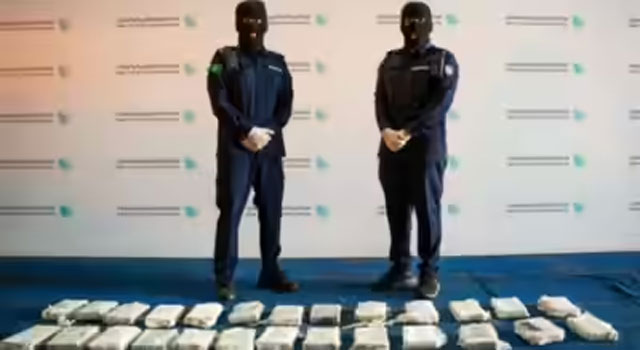Daijiworld Media Network – Jeddah
Jeddah, Aug 16: Officials from the Zakat, Tax and Customs Authority (ZATCA) thwarted an attempt to smuggle 28.9 kilograms of cocaine into Saudi Arabia through Jeddah Islamic Port on Friday.
Authority spokesperson Hamoud Al-Harbi said the drugs were hidden inside a shipment of frozen meat and discovered after customs procedures, using advanced screening technology and sniffer dogs. This follows a June 27 bust at the same port, where 732,015 Captagon pills concealed in wardrobes were seized, leading to the arrest of four individuals.

Al-Harbi highlighted that these consecutive interceptions demonstrate both the ingenuity of traffickers and the increasing pressure on border authorities to stay ahead of evolving smuggling methods. He reaffirmed ZATCA’s commitment to strict customs controls and vigilant monitoring to safeguard society.
Jeddah Islamic Port, the Kingdom’s largest port on the Red Sea and a key gateway for Hajj and Umrah pilgrims, handles 75% of Saudi maritime trade and transshipment. Its strategic location makes it a critical checkpoint in national security efforts.
Formed in 2021 from the merger of the General Authority of Zakat and Tax and Saudi Customs, ZATCA operates across 48 air, land, and sea ports, including King Abdulaziz Port in Dammam, King Khalid International Airport in Riyadh, and Al-Haditha Border Port. The authority employs X-ray scanners, AI risk assessments, K9 detection units, and manual inspections in coordination with national drug control agencies.
ZATCA also enforces restrictions on items violating public safety, religious values, or economic interests, such as weapons, alcohol, counterfeit goods, and unlicensed medications. Citizens can report suspicious activities anonymously via hotline 1910, email 1910@zatca.gov.sa, or the international line +9661910, with verified tips eligible for monetary rewards.
Saudi Arabia imposes some of the world’s strictest penalties for drug smuggling, including long prison terms, heavy fines, deportation for foreigners, and in severe cases, the death penalty for large-scale or repeat offenses, reflecting its zero-tolerance policy on narcotics and commitment to public health and national security.